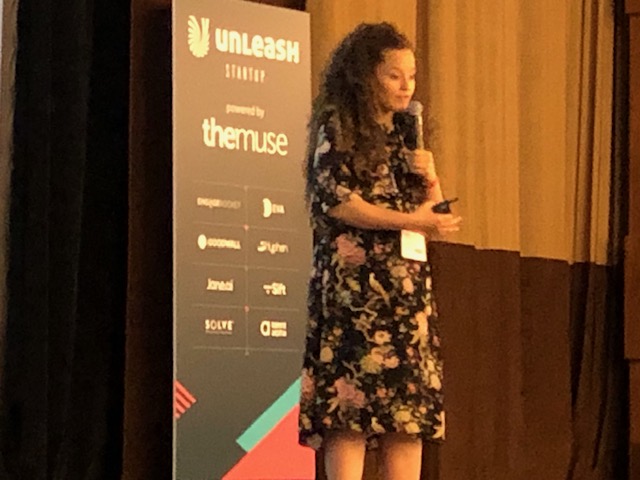At the recent Unleash event in Las Vegas, Toni Thompson, who runs People & Strategy for The Muse, got up on stage to talk about scaling hiring for startups.

Here’s what she told the audience;
I think managers particularly when you’re scaling and having to hire fast are your number one asset. I see some people nodding. Yeah, you know. That everyone’s is like, “Oh, the recruiter will handle it.” No, the recruiter will not handle it on their own.
The recruiter will partner with the hiring manager. The manager really needs to know their stuff and there’s a few things that your managers really, in my opinion, need to know.
The first is assessing flight risk. Now this is going to be a little bit more on the HR camp but, the reason is because you don’t want to add 300 people by the end of the year but oh, this side of the bucket’s leaking.
You’re just constantly replacing people. You’re not going to be able to scale like that because you’re not adding people. You’re just neutral because everyone’s leaving.
You want to make sure that as you’re going through the process similar to what I had said before where you have to consider the work impact.
Manager’s should be talking to the people along the way to assess flight risk and then taking that information back to your HR person, back to the recruiting team so, either you’re tucking those people in or you’re planning for their back fill in your scaling numbers and cost implications. You want to make sure that you’re assessing yourself.
You will also want to train your people to be company ambassadors. Do you know what your managers would say about the company? Why do they like working there? What do they like about their team? What’s the origin story of why they started there? What are they still excited about?
Even if those stories are 50% great and 50% not so great, that’s okay. You should know the authentic story and maybe be able to share some points that candidates that really resonate with candidates because, I find that hiring managers sometimes don’t even know what to say when candidates ask them, “What do you love about the company?” When they’re given a few pointers they’re like, “Yeah, I actually agree with that. Yes, good to say that. Thank you.”
You want to make sure that they have a story to tell when they’re in the process of talking to candidates and they always need to be recruiting. Your managers always need to be recruiting.
If you were in a scaling environment and I would say even if you’re not in a scaling environment, they are your party or recruiting team and make it really easy for them. There should be emails that constantly go to them. They know all the roles that are open. They know the details behind those roles. They have job description lengths.
Also, I think it’s a really great tool if you don’t use tools like … We use Bamboo HR, it’s really great to put some messages in there on roles that we’re hiring and they just poof, they hit a button and it posts to their LinkedIn page.
But, if you don’t have that, they could easily do it via email, write something for them, link to the job description, always have them on recruiting. If they’re going to a conference, tell them the roles that are open. Ask them to mention at the end. Give them tools to be always recruiting and then be amazing interviewers.
They should be able to wow the pants off the candidates that come in because particularly when you’re dealing with a narrow skillset like a data scientist to machine learning engineer, the market place is very, very small.
They all know each other and so if you have one manager that gives them an awful candidate experience, you have probably just blown two months of solid hiring particularly if you’re having to hire a [inaudible 00:03:38]. Really important that you’re training them on how to make sure the candidate experience is great and your recruiters are really partnering with them on that.
Then giving feedback to recruiters quickly. We all know the pain point to that but, feedback has to go to recruiters very quickly. We use Lever, a really great tool depending on your company size. That might not be the right ATS for you but Slack has been a godsend for getting feedback on getting candidates along the way.
In summary, make sure you have your scaling strategy. Know what scaling means and make sure you’re considering the organization as you’re building out your scaling plan. Think about the cost implications and think about the CFO defensibility. What’s the impact that employees are having on the company and make sure to tell a quantitative and qualitative story.
Then finally, train your managers as I mentioned. They are going to be a huge asset to you as you’re embarking on the scaling journey, chaotic world of scaling.
